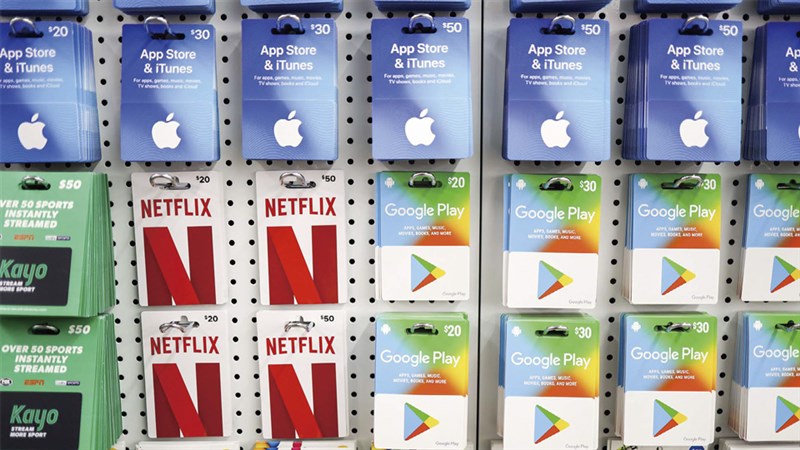2020.10 The Taiwan Banker NO.130 / By David Stinson
Get Tech Regulation Right Before Doing FintechUS laws keep commerce separate from banking, but the definition of commerce is also changing
Rather than the tech industry itself, the debate in the US over the role of technology companies the financial system is instead being driven by the experiences of a decidedly less advanced company: Walmart. Big tech has been steadily working to chip away at the advantages of banks, creating payment application scenarios, developing biometric technologies to make verified interactions more convenient, and gathering data to reduce information asymmetries. Nevertheless, pure tech companies (as opposed to native fintech startups) have eschewed the cumbersome process of directly registering as a bank to do core lending/deposits business. The reasons have to do with a combination of external factors and the positioning of the companies themselves. American regulators have always been suspicious of large conglomerates involving finance, eschewing the industrial group model frequently found in Asia. From the outside, it’s difficult to ensure that finance companies’ lending decisions to related counterparties are fair, and tech companies have been causing monopoly concerns even without operating in finance. Meanwhile, in March 2020, the payments platform Square and student loan servicer Nelnet were approved for a special license called an ILC charter, allowing them to operate in many ways like banks. The ILC arrangement goes back a long way. A pivotal event occurred in 2007, long before the so-called FAANG (Facebook, Apple, Amazon, Netflix, and Google) dominated the stock market. In that year, Walmart withdrew the application it submitted two years earlier for an ILC charter. Following that controversy, no further such licenses would be issued after 2008 until this year. Industrial Loan Companies (ILCs) have been used by a variety of non-bank companies over the years as financing arms of their other operations. Debate about the role of ILCs preceded Walmart’s application, but due to Walmart’s politicized image – a positioning which might be compared to Facebook today – it served as a focal point for debate. Progress in fintech licensing will determine the extent to which regulators see the difference between tech infrastructure an brick-and-mortar commerce. Not just a loophole The separation between commerce and banking has a long history in the US, going back to the 1956 Bank Holding Company Act (BHCA). Critics of the ILC arrangement call it a “loophole” around the BHCA, and its legal basis certainly makes it look that way. ILCs are defined by the laws of certain states which allow them, not the federal government. Over half of US ILCs are based in Utah, although they are permitted to operate nationally. The regulatory concerns related to tech firms in banking are diverse, ranging from systemic stability to monopoly and conflict of interest. Systematic stability in turn includes two concerns. The first is that tech firms may not be subject to the rigorous requirements of the Federal Reserve, which were expanded after the financial crisis. Even if these financial institutions don’t become important on a systematic basis, this difference in regulation gives them an unfair advantage. Meanwhile, even though ILCs aren’t subject to this type of federal oversight, they still receive the benefits of deposit insurance through the Federal Deposit Insurance Corporation (FDIC). More broadly, regardless of any formal arrangements, they may still be considered “too big to fail,” giving theholding companies that own them a powerful form of insurance, even when they may not be banks. General Motors Acceptance Corporation (GMAC) operated as an ILC before changing its status on an expedited basis in order to receive US$ 17.2 billion in emergency funds. A 2019 white paper by the Independent Community Bankers of America (ICBA) expounded on a variety of arguments against ILCs and more. Small community banks have a very different business culture from tech firms – even more than for larger financial institutions – and the ICBA’s position makes it appear as if the industry perceives them as potential rivals. The organization also opposed an earlier, ultimately unsuccessful proposal for a federal fintech charter. Community banks are not just under pressure from tech. They were disproportionately hit by the Dodd-Frank Act following the financial crisis, at the same time that their original advantage of branch coverage is becoming less relevant – resulting in precipitously declining numbers over the past decade. Some of the more forward-looking ones have however also partnered with tech firms to serve as back-ends for their more strongly branded counterparts. Household names like Stripe and Robinhood are powered by lesser-known brands like Cross River and Sutton Bank. Data Banks Beyond all of the potential issues that might arise from combining technology with industry, the technology side itself also has an entirely different set of pre-existing issues. Its business model innovation is summed up by the phrase “if you’re not the customer, you’re the product.” Users are being offered as commodities to marketers (Google and Facebook) or to investors directly in lieu of profits (Amazon), creating obvious potential for conflicts of interest. This is a problem for which the existing regulatory frameworks are unprepared – particularly anti-monopoly policy. Although frequently thought to be a solution because it provides a pretext for the government to execute powerful policies, monopoly doctrine currently revolves entirely around price for the end consumer. Unlike sectors which directly sell to consumers, tech often subsidizes its users, making this measure irrelevant. For the advertisers themselves, who pay for the services, the monopoly argument is particularly weak. A growing movement called the New Brandeis school is advocating to expand the definition of antitrust to include the entire supply chain, not just end users. When suppliers are squeezed, the result may not be entirely bad for customers, who benefit from lower prices in the short term. Rather, the costs may be subtle and less direct, such as less product variety or long-term investment. Because the legal system is not properly set up to adjudicate such matters, these scholars say – nor to move as fast as the tech industry – regulators must anticipate problems ahead of time based on industry structure. The other major approach to tech regulation is data governance, regarding platforms as data intermediaries in the same way that banks are financial intermediaries. The US has lagged Europe in this regard, with no equivalent to the GDPR – which might be attributed either to philosophical differences or federal inaction. Nevertheless, the 2019 California Consumer Privacy Protection Act (CCPA) serves as ade factonational standard: tech companies, even more so than in other industries, are unwilling to differentiate their content by state. The US is also discovering data governance through Chinese apps like TikTok, but this is being framed entirely in the context of national security rather than domestic policy. The tech industry becomes a target A successful tech-finance merger would create benefits that probably can’t yet be fully understood. A recent paper by the Bank of International Settlements called “Data vs Collateral,” using data from Ant Financial, explored how fintech has reduced the property barriers to capital access. This has not only benefitted financial inclusion, but even financial stability (because utilization as collateral affects prices of the underlying assets). On the payments side, reduced transaction costs could change business in unanticipated ways. For the time being, however, outside of China, it remains to be confirmed whether the tech model is truly sustainable. The giants have come under steadily increasing scrutiny over the past five years as regulators and consumers become more educated about the value of their data. It remains to be seen whether the US will ultimately take a more punitive or supportive approach. Other Western countries have tended towards the latter, but without great cost because the major players are based in America. Whatever marginal business opportunities big tech could gain through a banking license are overshadowed by the consequences of this political process. Issues in the parent company are one of the key aspects of regulatory approval, which is why it’s so far only been more focused fintech firms who have attempted to go the banking route. A test case, however, has emerged with a third recent ILC applicant who has so far been unsuccessful. Rakuten, which has been compared to Japan’s Amazon, and is also opening an internet-only bank in Taiwan, resubmitted its ILC charter application in May. If ultimately successful, this case will demonstrate a shift in attitudes not only towards tech, but also towards the combination of banking with other industries.


